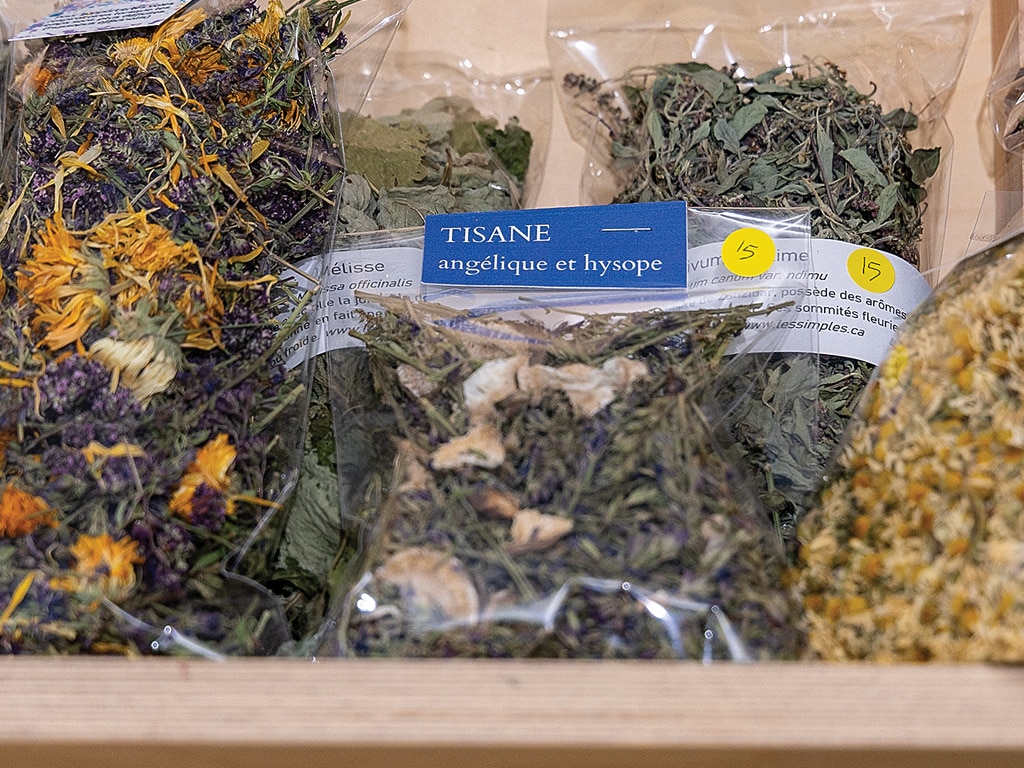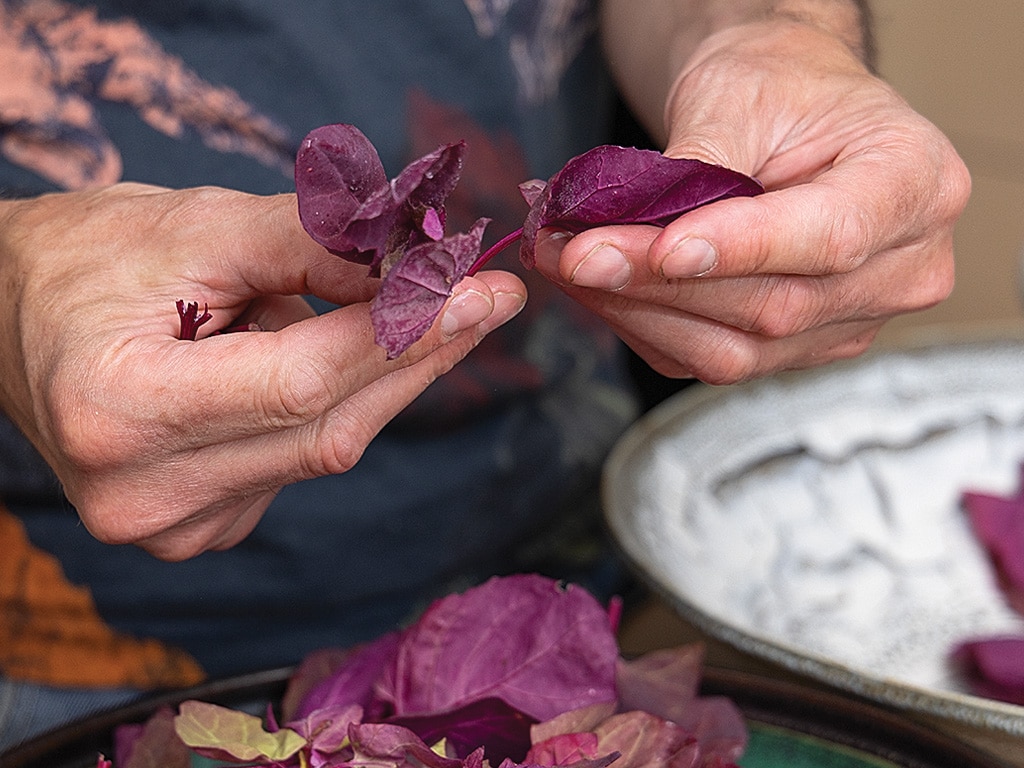Agriculture, Specialty/Niche November 01, 2024
The Seed Man
Quebec farmer works tirelessly to popularize unknown heirloom crop varieties.
by Lorne McClinton
It's truly amazing how a farmer can be world famous in one sector of agriculture but practically unknown in all the others. Patrice Fortier and his farm, La Société des Plantes, in Kamouraska, Quebec, is a good example. He's a rock star in the gastronomical world; Le Laurier de la Gastronomie Québécoise just named him Producer of the Year for preserving, breeding, and promoting heritage vegetables.
For the past 24 years, Fortier has traveled extensively, hunting down heritage vegetable varieties and semi-wild plants from Europe and North America, and introducing them to wider audiences.
Originally, he envisioned his operation as both a farm and a cultural centre that paired growing heritage vegetables with art and poetry. But his passion for cooking and his mission to source ancient varieties called for his project to evolve. Now Fortier strives not only to simply preserve long forgotten varieties, he also finds and promotes ones that could potentially appeal to commercial markets.
Find and promote. "I'm like an impresario," Fortier says. "I find [plant varieties] and promote them.
My goal is to be able to sell seed packs in bigger sizes so that gardeners and farmers can grow them in large enough quantities to meet the demands of high-end restaurants."
Early in his farming career Fortier discovered that just because he was able to source and multiply the seeds of nearly forgotten vegetables, it didn't mean there was a ready market for them. They could be delicious, and perhaps have all kinds of other great benefits, but most people won't buy vegetables they aren't familiar with. So, he decided his best way forward was to familiarize people with them through a series of farm and food workshops. People are invited to walk through the garden, see the different varieties growing, and then head to the farm's commercial kitchen where they learn how to prepare the vegetables and sample them.
"Skirret [for example] is a very old vegetable \that was popular in the Middle Ages," Fortier says. "It's regaining popularity because it's a perennial vegetable that's a little like a carrot. But it's much sweeter than any carrot you will taste in your life. If you fry it, it's a real treat."
Above. Hosting gourmet workshops at Fortier's farm has been a key part of his efforts to promote unfamiliar heirloom plants to chefs and foodies. It gives them a chance to experience plants like orach (mountain spinach). Its purple leaves are colorful in salads.
Perhaps one of Fortier's biggest successes is the (Pardailhan) Black turnip that's receiving so much acclaim from Slow Food USA. He first came across it in a French book that devoted a chapter to it. Fortier decided he had to grow some and promptly fell in love with the taste.
"My God, it was amazing; it's a totally different turnip," Fortier says. "I served it raw to my family at Christmas; no one guessed it was a turnip." For the next 15 years, he was the only person selling it in North America.
Often historic vegetable varieties disappeared for a good reason. Maybe they required a little more work to grow or to harvest. But often they have a lot of good characteristics. Perhaps they're more resilient and can withstand flooding, disease, or are pest resistant. So, Fortier also tries to adapt them to modern conditions in his breeding program.
"Taste and look are very important in our breeding programs," Fortier says. "Currently, I'm working on a 19th century French lettuce variety, La laitue Grosse Blonde Paresseuse [fat, lazy, blonde lettuce]. The leaves need to be blond, look lazy, and they need to be fat. If the plant is stressed the leaves don't look lazy. I find that they [the vegetables] have personalities, that's why we call our farm The Plant Society."
Current demand for heritage vegetables, especially the aromatic ones, is booming due to demand from the microbrewing and micro-distilling industry. Brewers and distillers are always looking for new flavors for their products. The licorice taste of Norwegian angelica is a good example.
"Angelica thrives in cold, northern climates," Fortier says. "It was the most important plant in pagan Viking culture [for culinary and medicinal purposes] and is the only vegetable that grows in Greenland. This is an amazing plant with a long history. Its stems were candied and used in pastries, but nobody today eats it, so we didn't quite know what to do with it. Now we sell the seed and the roots, but in the last few years a big bulk market for angelica pepper, using year-old seeds, opened up in the distillery industry. We have an entire festive workshop based on angelica to help people discover its potential. People can sign up for one of our gourmet workshops on our website, lasocietedesplantes.com." ‡
Read More

Agriculture, Livestock/Poultry
Non-Profit, Plenty of Benefits
Non-profit creamery is a lifeline for isolated dairies.

AGRICULTURE, FARM OPERATION
Fill Up and Go
Plan ahead to cut filling down time.



